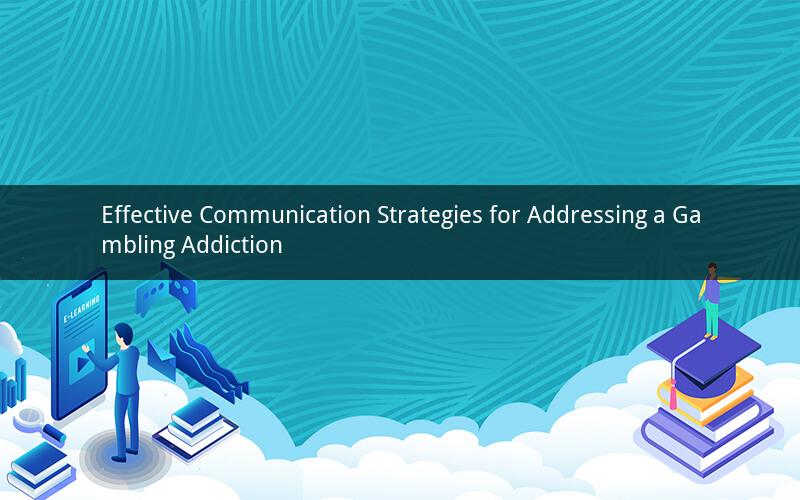
Gambling addiction is a complex issue that affects individuals and their loved ones. Communicating with someone who has a gambling addiction can be challenging, but it is crucial for their recovery process. This article provides practical tips on how to talk to someone who has a gambling addiction, emphasizing empathy, understanding, and support.
1. Understand the Problem
Before engaging in a conversation with someone who has a gambling addiction, it is essential to have a clear understanding of the problem. Familiarize yourself with the signs and symptoms of gambling addiction, such as financial problems, increased secrecy, and neglect of responsibilities. Understanding the severity of the addiction will help you approach the conversation with empathy and concern.
2. Choose the Right Time and Place
Selecting the right time and place for the conversation is crucial. Find a private and comfortable setting where both of you can talk without distractions. Choose a moment when the person is calm and not under the influence of alcohol or drugs. This will help ensure a productive and meaningful conversation.
3. Use "I" Statements
When discussing the issue, use "I" statements to express your concerns and feelings. This approach helps avoid placing blame on the person, which can lead to defensiveness. For example, instead of saying, "You are a problem gambler," say, "I am worried about your gambling habits and how it affects our family."
4. Show Empathy and Support
Empathy is key in helping someone with a gambling addiction. Acknowledge their struggles and let them know that you are there to support them. Avoid judgment and criticism, as this can drive the person further away from seeking help. Instead, focus on expressing your love and concern for their well-being.
5. Encourage Professional Help
Encourage the person to seek professional help for their gambling addiction. Suggest they consult with a therapist, counselor, or support group specializing in gambling addiction. Provide information about available resources and offer to help them find a suitable treatment option.
6. Set Clear Boundaries
It is essential to establish clear boundaries to protect yourself and the person with a gambling addiction. Discuss the consequences of their actions and outline the support you can provide. Make it clear that you are willing to help, but you cannot enable their addiction.
7. Be Patient and Persistent
Recovery from a gambling addiction is a long and challenging process. Be patient and persistent in your support. Understand that setbacks may occur, and it is essential to remain supportive during these difficult times. Encourage the person to keep trying and remind them that you are there for them every step of the way.
8. Educate Yourself
Educate yourself about gambling addiction to better understand the person's struggles. This knowledge will help you provide more informed support and address any misconceptions they may have. Attend support groups, read articles, and consult with professionals to enhance your understanding of the addiction.
9. Maintain Open Communication
Maintain open and honest communication with the person throughout their recovery journey. Encourage them to share their feelings and experiences, and be prepared to listen actively. This open dialogue will help strengthen your relationship and support their recovery process.
10. Take Care of Yourself
Lastly, take care of yourself during this challenging time. Dealing with a loved one's gambling addiction can be emotionally and physically taxing. Ensure you have a support system in place, seek counseling if needed, and practice self-care to maintain your well-being.
FAQs:
1. How can I tell if someone has a gambling addiction?
A. Look for signs such as financial problems, increased secrecy, neglect of responsibilities, and a preoccupation with gambling.
2. Should I confront the person about their addiction?
A. Yes, but do it in a supportive and non-confrontational manner. Use "I" statements to express your concerns and focus on the addiction, not the person.
3. How can I encourage someone to seek help?
A. Suggest they consult with a therapist, counselor, or support group specializing in gambling addiction. Provide information about available resources and offer to help them find a suitable treatment option.
4. What should I do if the person refuses to seek help?
A. Continue to offer support and express your concerns. Maintain clear boundaries and remind them of the consequences of their actions.
5. How can I support someone during their recovery from a gambling addiction?
A. Be patient, persistent, and empathetic. Encourage open communication, educate yourself about the addiction, and take care of yourself during this challenging time.